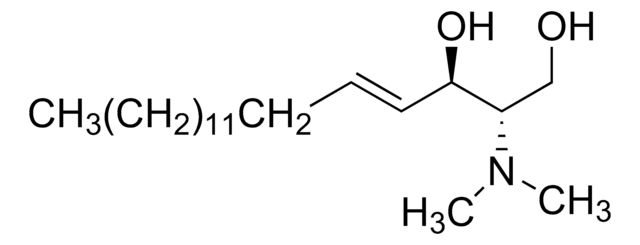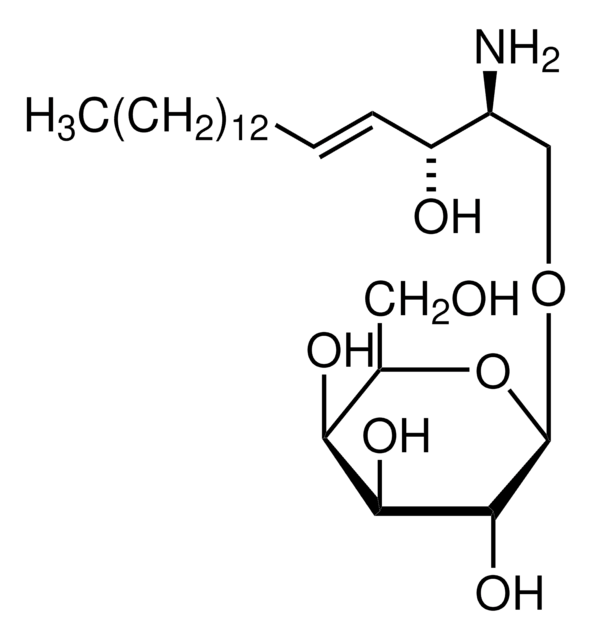860496O
Avanti
Dimethyl Sphingosine (d18:1)
N,N-dimethyl-D-erythro-sphingosine, neat oil
Synonym(s):
(2R,3S,E)-2-(dimethylamino)octadec-4-ene-1,3-diol, N,N-DMS, D-erythro-N,N-dimethylsphingosine
About This Item
Recommended Products
form
liquid
packaging
pkg of 1 × 5 mg (860496O-5mg)
manufacturer/tradename
Avanti Research™ - A Croda Brand 860496O
lipid type
sphingolipids
shipped in
dry ice
storage temp.
−20°C
SMILES string
OC[C@@](N(C)C)([H])[C@]([H])(O)/C=C/CCCCCCCCCCCCC
InChI
1S/C20H41NO2/c1-4-5-6-7-8-9-10-11-12-13-14-15-16-17-20(23)19(18-22)21(2)3/h16-17,19-20,22-23H,4-15,18H2,1-3H3/b17-16+/t19-,20+/m0/s1
InChI key
YRXOQXUDKDCXME-YIVRLKKSSA-N
General description
Application
- to investigate D-erythro-N,N-dimethylsphingosine (DMS)-induced cell death in U937 cells to understand its molecular mechanism
- to study its effects on intracellular Ca2+ concentration, pH and glutamate uptake in human 1321N1 astrocytes
- in substrate specificity studies of sphingosine methyltransferase activity in rat kidney homogenate
Biochem/physiol Actions
Packaging
Legal Information
Storage Class Code
10 - Combustible liquids
WGK
WGK 3
Flash Point(F)
Not applicable
Flash Point(C)
Not applicable
Certificates of Analysis (COA)
Search for Certificates of Analysis (COA) by entering the products Lot/Batch Number. Lot and Batch Numbers can be found on a product’s label following the words ‘Lot’ or ‘Batch’.
Already Own This Product?
Find documentation for the products that you have recently purchased in the Document Library.
Our team of scientists has experience in all areas of research including Life Science, Material Science, Chemical Synthesis, Chromatography, Analytical and many others.
Contact Technical Service








